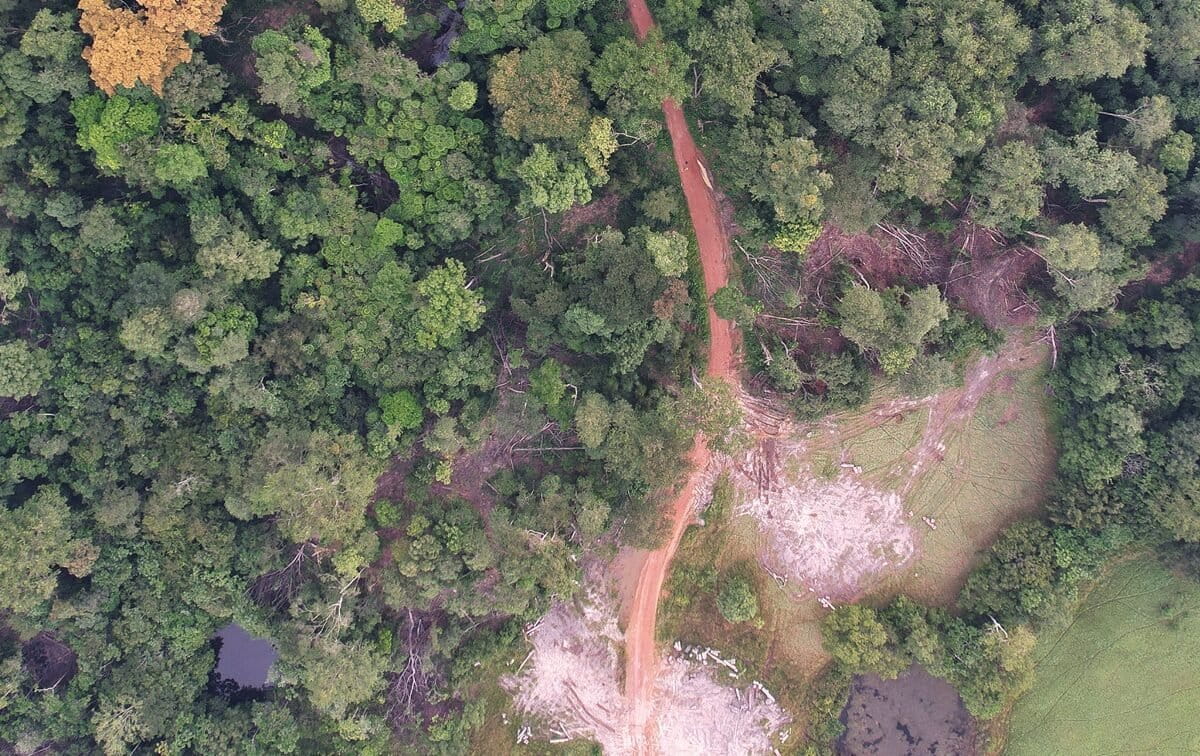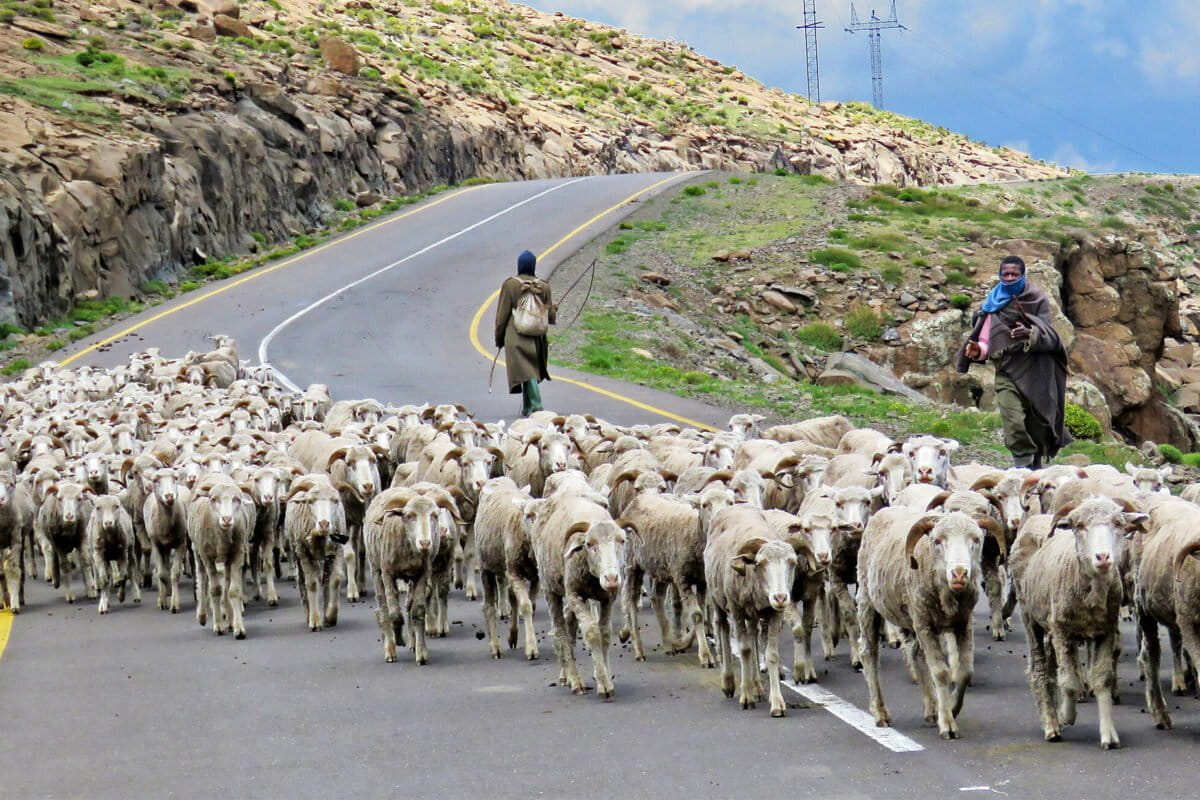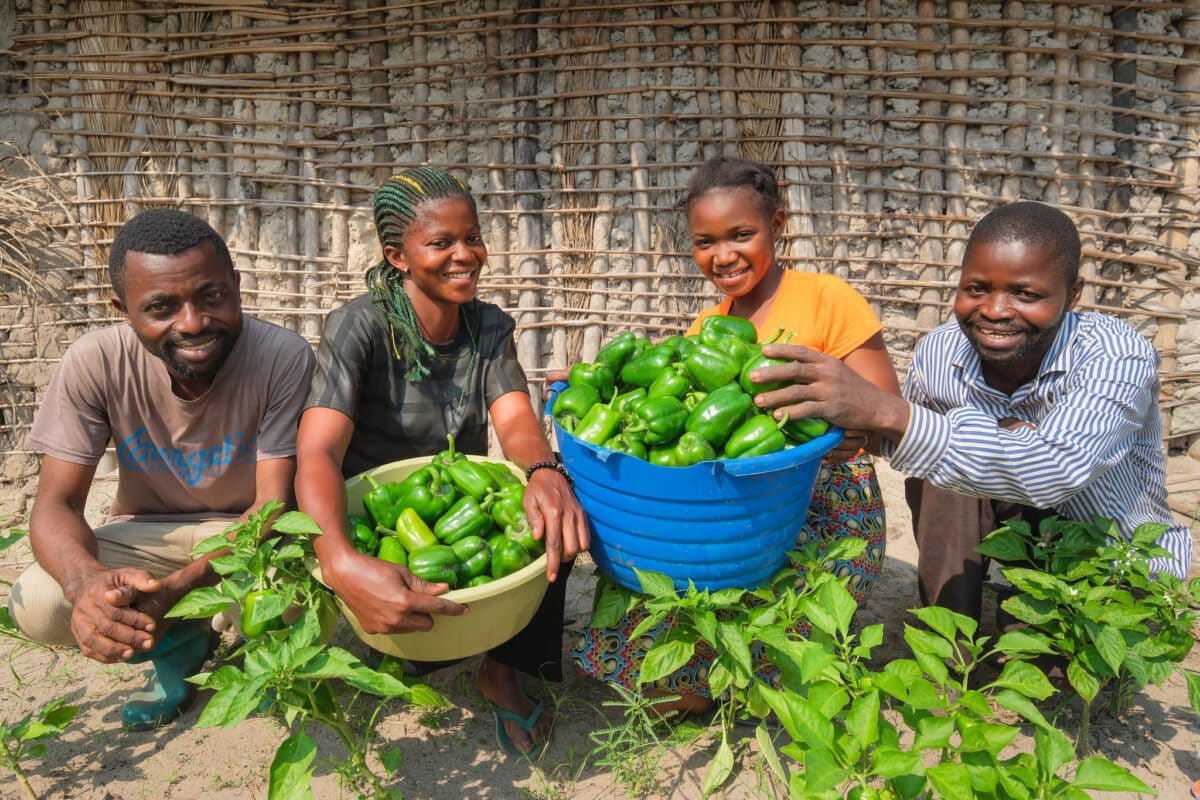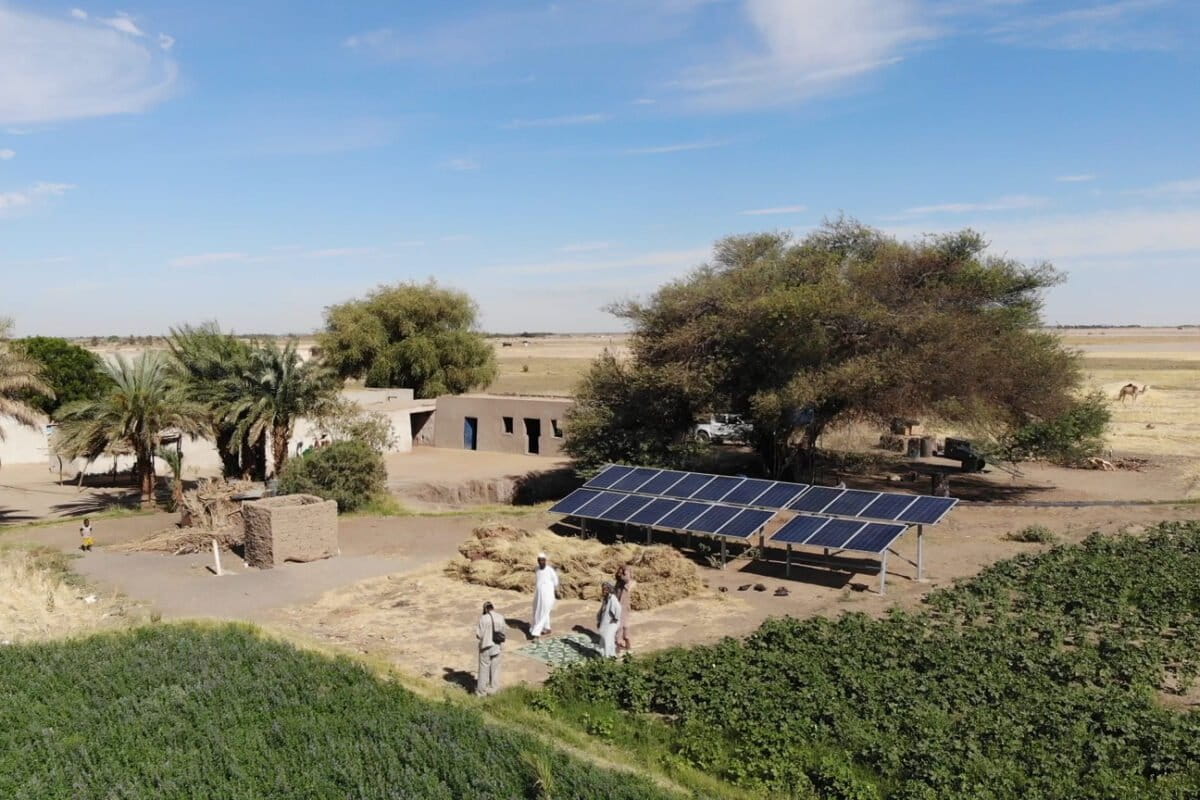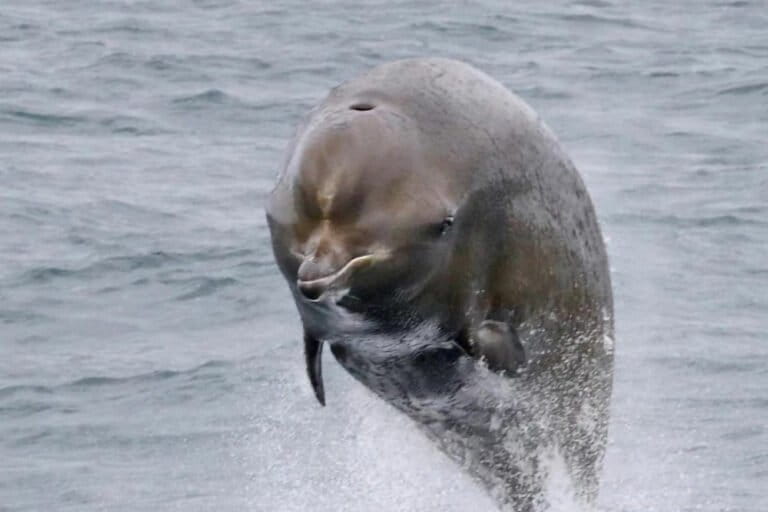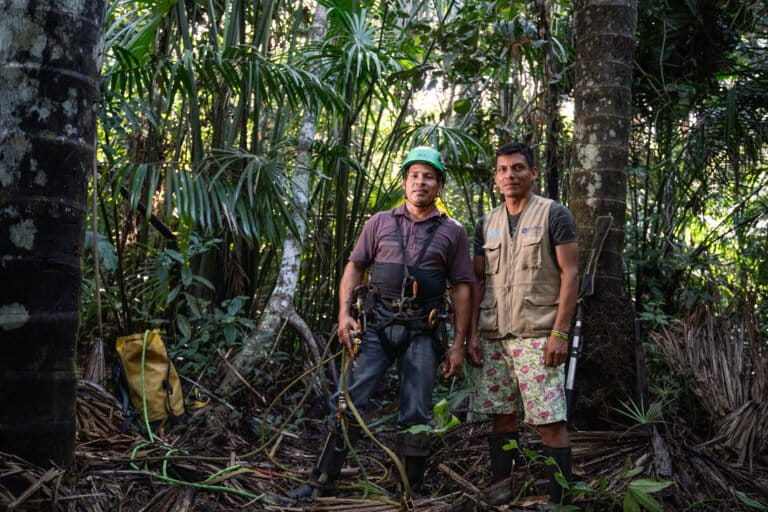- A Canadian-backed company seeking to mine potash in the Brazilian Amazon has finally begun a consultation process with Indigenous inhabitants — more than a decade after it arrived and started prospecting.
- Potássio do Brasil has promised jobs and prosperity for the municipality of Autazes, but Indigenous Mura communities say they’re worried the mine could pollute their rivers, killing the fish they depend on.
- But their resistance is undermined by the government’s long-standing refusal to acknowledge their land claims; officially recognized Indigenous territories in Brazil are off-limits to mining.
- The proposed mine is part of a wider push to exploit the Amazon by President Jair Bolsonaro, who says the potash project specifically will ease Brazil’s reliance on fertilizers imported from sanctions-hit Russia.
Packed into a thatched-roof meeting hall in the village of Urucurituba, deep in the Brazilian Amazon, hundreds of Mura Indigenous people mulled over whether to allow a massive potash mine on their lands. Some worried it could pollute their rivers, killing the fish they depend on. Others questioned if the mine would really bring prosperity to this corner of Brazil’s Amazonas state.
The meeting, held in early April, was the first step in a long-awaited consultation process giving the Mura people a fair chance to weigh in — a right enshrined in Brazilian and international law — on whether the mining company, Potássio do Brasil (Brazil Potash Corp.), should be allowed to explore potash next door to their villages. Potash is a key ingredient in the production of fertilizer, used for replenishing depleted soil nutrients.
“We have a right to this land,” said Sérgio do Nascimento, the tuxaua, or leader, of the village of Soares. It’s one of 44 Mura communities scattered across Autazes, a municipality 100 kilometers (60 miles) east of Manaus, the Amazonas state capital. “We want nothing more and nothing less than what is within our rights.”
But in Brazil’s capital, Brasília, some 3,500 km (2,200 miles) away, other forces were at work. Just days before the Mura meeting, the Canadian investors behind the mining project met with Brazilian President Jair Bolsonaro to lobby for the mine and complain about licensing hurdles. Bolsonaro assured the company’s leadership that he was committed to “unlocking” fertilizer projects like the potash mine.

Stalled for more than a decade, the mine has gained fresh momentum in recent weeks, fueled by the war in Ukraine being fought thousands of miles away from the Amazon. With most Western nations slapping sanctions on Russia, the world’s top fertilizer exporter, global supplies of minerals like potash have dwindled, sending prices soaring and dealing a heavy blow to Brazil’s agricultural sector.
The South American agricultural giant is Russia’s top buyer of fertilizer, and imports more than 85% of its fertilizer. In 2020, Brazil bought $1.43 million in fertilizer supplies from Russia, according to trade data analyzed by MIT.
President Bolsonaro, whose eagerness to develop the Amazon Rainforest has won him the loyalty of Brazil’s powerful agribusiness lobby, was quick to call the Ukraine war an “opportunity” to open up Indigenous lands to mining and reduce Brazil’s dependence on Russian fertilizer.
“The war is being used as an excuse to dial up the heat and move this project forward,” said Luiza Machado from the Indigenist Missionary Council (CIMI), a Catholic Church-affiliated group that fights for the rights of Indigenous people and is supporting the Mura people in the consultation process, in a phone call. “The Mura are under a lot of pressure right now.”
The Mura Indigenous people say they are being threatened, harassed and bribed by stakeholders who want to see the mine approved. Potássio do Brasil said it’s not aware of its employees pressuring the Mura and told Mongabay in a statement that “this type of behavior and action is not consistent” with the values of the company.
But even without a green light, the project is already spurring a spike in deforestation, land grabbing, and invasions of Mura lands — some of which are still awaiting legal demarcation — as speculators rush to lay claim to slices of forest near the mining site, according to advocates. The Mura are still fighting for legal tenure to much of their traditional land.
Primary forest loss in Autazes nearly doubled in 2021 over 2020, hitting the second-highest level since measurements began in 2002, according to satellite data from the University of Maryland visualized on Global Forest Watch. In total, the municipality lost 13% of its primary forest cover between 2002 and 2021.
“There are people who say we are getting in the way of the development,” Nascimento said. “We’re not getting in the way of anything. We just want to see the law respected.”


Political support
Potássio do Brasil says its mine will produce some 2.4 million metric tons of potash annually, helping wean Brazilian farmers off costly imported fertilizers. The company also says the project will bring as many as 30,000 jobs to Autazes, and denies that any part of its mine will overlap with Indigenous lands.
But the potash mine project has been paralyzed since 2017, when a federal judge ordered Potássio do Brasil to halt its activities until it had consulted the Mura Indigenous people. The judge also barred the company from promoting its project in the meantime.
The consultation process was poised to start in 2020, but was delayed by COVID-19. During the pandemic, Potássio do Brasil won the support of some residents when it rushed to distribute basic food baskets and organized vaccination campaigns, according to Indigenous groups.
Even as federal courts blocked the project from advancing, other officials, from local politicians all the way to the federal government, have taken a different stance.
Looming over the town’s dusty port, a massive billboard reads, “Autazes, land of the milk and potash.” The billboard was installed by city officials, who have enthusiastically embraced Potássio do Brasil’s promises of prosperity for Autazes and its 40,000 residents. The local economy is currently driven by the ranching of cattle and domesticated water buffalo.


Mayor Andreson Cavalcante has been a particularly vocal advocate of the potash project, promoting it on social media and singing its praises on local radio programs. During a recent visit to Canada, Cavalcante posed for pictures with executives from Potássio do Brasil, reiterating his unwavering support.
“I’m very optimistic that we’ll be able to advance in the generation of income, in creating jobs,” he said in a video posted on social media. “And the winner in this is Brazilian agribusiness.”
Standing beside Cavalcante in the video was Tereza Cristina, Brazil’s agricultural minister at the time. She chimed in to add that the mining project is “sustainable and can bring food security not only for Brazil, but for many other countries around the world.”
The Ministry of Agriculture, Livestock and Food Supply told Mongabay that potash is considered a strategic mineral in Brazil’s efforts to reduce its reliance on imported fertilizers. “The impacts of the project are being deeply analyzed,” a spokesperson said in an emailed statement, adding that officials are exploring measures to mitigate the effects of the mine, and remediate and compensate those affected if necessary.
Funai, the federal agency for Indigenous affairs, said in an emailed statement it doesn’t consider the mine to be in an Indigenous reserve, because the government has not yet approved the Mura’s demarcation applications for Soares and Urucurituba among other areas. The project does lie close to some recognized Indigenous lands, though, and Funai said it’s legally necessary to consult with the Mura people in the region before moving forward with the mine.
The Autazes mayor’s office did not respond to a request for comment.

Looming impacts
Potássio do Brasil’s massive project, which would see potash extracted and processed in Autazes before being transported out along a network of rivers and roads, has raised alarm among environmentalists.
“We’re talking about exploration in a region that is very sensitive and rich ecologically,” said Márcio Santilli, a founding partner of the Instituto Socioambiental (ISA), an NGO that advocates for environmental diversity and the rights of Indigenous people. “We don’t know what the full scope of the impacts on the flora and fauna will be. But the company dismisses the environmental risks.”
Critics say the mine, like others across the Amazon, will likely open up the region’s pristine forests to further deforestation and contaminate its biodiverse river systems. This could spell disaster for the Mura people, who rely on hunting, fishing and subsistence farming for their survival.

Autazes is home to a patchwork of Indigenous lands, some as small as a few hectares, belonging to some 18,000 Mura Indigenous people. Here, rivers and streams crisscross the forest landscape, swelling during the rainy season to form a patchwork of floodplains called várzeas. Image by Ana Ionova for Mongabay.As mining workers flock to the region and the local population swells, rights groups also warn that social problems will trickle in, threatening the Mura’s traditional way of life. In other Indigenous territories across the Amazon, including the Yanomami Indigenous Territory, also in Amazonas, illegal mining has ushered in a devastating wave of violence, drugs, prostitution and disease.
“The population will increase, and a wave of other problems will come along with it,” said Nascimento, the Mura leader. “This is all really worrying for us.”
Potássio do Brasil, majority-owned by Canadian merchant bank Forbes & Manhattan (F&M), also has its eye on the Amazon and Madeira river basins, where it hopes to find more deposits.
When asked about the environmental and socioeconomic impacts of its mining project, Potássio do Brasil said it “respects environmental norms and the rights of traditional people,” adding it recognizes the importance of consulting the Mura people.

Fight for land rights
At the heart of the dispute over the potash mine is the Mura people’s decades-long struggle for land rights.
Once occupying vast swaths of the region’s maze of forests and floodplains, the Mura’s territory ended up splintered into dozens of Indigenous reserves in the demarcation process, some as small as a few hectares. While some of these lands are formally recognized by the Brazilian government, others have been awaiting full demarcation for years.
“The Mura ended up with a fragmented territory, in every stage of the process — and some have yet to even start the demarcation process,” CIMI’s Machado said.
Potássio do Brasil first arrived in Autazes more than a decade ago, and didn’t take long to strike it lucky. In the northeastern reaches of the municipality, it stumbled on the largest deposit of potash ever discovered in Brazil.
But it soon drew backlash from the Mura people, who denounced the company for secretly prospecting on their ancestral lands without their permission, and even removing sacred burial urns for exploratory drilling.
Yet the Soares/Urucurituba Indigenous land, where Potássio do Brasil carried out some its initial prospecting, has not yet been formally recognized by the Brazilian government. Potássio do Brasil maintains that the site lies on undesignated land owned by the government, not by the Mura people.


Funai, tasked with overseeing the demarcation of Indigenous territories, told Mongabay that it’s in the process of analyzing the Mura’s land claims in the region. For now, though, the mining “project is not located in any region considered to be an Indigenous Reserve, and there is no legal prohibition to the enterprise.”
“The procedure for demarcating Indigenous areas is a complex legal act that comprises a set of administrative steps,” Funai said in an emailed statement, noting that lands can only be officially considered Indigenous reserves under full federal protection after the government finishes the process.
In Brazil, the formal recognition of Indigenous lands can take years — or even decades. And demarcations have ground to a halt under President Bolsonaro, who has pushed to open protected territories to mining, while vowing not to demarcate “another centimeter” of Indigenous land.
Bolsonaro also gutted Funai of personnel and resources, leaving hundreds of reserves in limbo as they await recognition. Yet advocates say that, even without official recognition, these territories still belong to Indigenous people, whose ancestors have lived in the region for generations.
“The process of demarcation is just an administrative formality,” Machado said. “It doesn’t determine what is Indigenous land or not. Only Indigenous people have the right to claim land that was taken from their ancestors.”
In the case of the Mura, Indigenous leaders laid claim to the Soares/Urucurituba lands in 2003 and have been asking for official recognition ever since. Mura leaders even traveled to Brasília in 2018 to again ask Funai for recognition but were turned away, according to Nascimento.
“It’s no secret to anyone that the government looks at Soares and it doesn’t recognize us as Indigenous,” he said. “But we have rights to this land. We need our territories; we need our land.”

Promises of prosperity
Indigenous leaders also accuse Potássio do Brasil of sowing divisions within their community, luring some Indigenous people to support the project with promises of prosperity.
The Mura people have been particularly vulnerable to this, advocates say, because they live scattered across dozens of villages in the region, making it difficult to consolidate strength in numbers.
“We’re already seeing a social impact: fights among the leaders, divisions among our people,” Nascimento said. “The company says it’s going to bring work, bring prosperity … They’re saying this so we can throw our arms up and let them come in.”
Yet Potássio do Brasil’s vow to set aside jobs for Indigenous people has proven especially attractive to some Mura people, since their villages are already suffering invasions and water pollution due to buffalo ranches.
“For those who are going hungry, this seems like a lifeline,” Machado said. “Because they are already unable to fish, to farm their land, to grow their food, to maintain their way of life — because of ranching and deforestation.”
In early May, federal public prosecutors said they’ve opened an investigation into Potássio do Brasil, after an inspection found the company had allegedly coerced Indigenous residents to sell their land, even though Indigenous territories cannot be legally bought or sold.
When asked about the investigation, Potassio do Brasil said in a statement that the company “has always operated within the law.”
Banner image: Residents of the Mura Indigenous village of Murutinga, in Brazil’s Amazonas state, take over a boat belonging to employees of the electricity company, who have come to cut off the community’s energy supplies. Image by Ana Ionova for Mongabay.
FEEDBACK: Use this form to send a message to the author of this post. If you want to post a public comment, you can do that at the bottom of the page.



